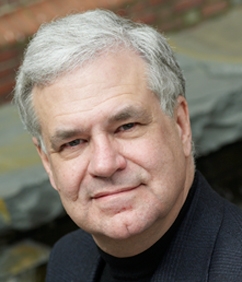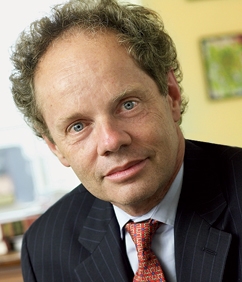NYU Law professors see their draft Principles on compliance and enforcement approved by American Law Institute
On May 17, members of The American Law Institute (ALI) voted to approve Tentative Draft No. 2 of Principles of the Law, Compliance and Enforcement for Organizations, the work of a team headed by NYU Law’s Geoffrey Miller, Stuyvesant P. Comfort Professor of Law, director of the Center for Financial Institutions, and co-director of the Center for Civil Justice, who served as reporter. Jennifer Arlen ’86, Norma Z. Paige Professor of Law, director of the Program on Corporate Compliance and Enforcement, and director of the Center for Law, Economics and Organization, was an associate reporter, along with Professors James Fanto of Brooklyn Law School and Claire Hill of University of Minnesota Law School.
The completion of this project, which began in 2015, marks the first time that ALI has produced Principles on this area of the law. ALI’s mission is to produce scholarly work to clarify, modernize, and improve the law; its Principles publications offer discussion of a topic and may include suggestions for best practices.
“The basis of this project comes out of the 1990s, 2000s and 2010s, where we had an enormous growth in fines and criminal prosecutions of organizations for various misconduct and misdeeds,” says Miller. “This caused a very powerful set of discussions and set many legal minds thinking about, what is a way to both enforce the law against organizations’ misconduct, but also to encourage organizations to enforce the law on themselves, through the processes of compliance.”
The Principles of the Law, Compliance and Enforcement for Organizations aims to provide best practices for a range of public and private entities—for large, publicly traded corporations in particular. The subject matter deals with both externally imposed norms, such as laws and regulations, and internally imposed norms, such as corporate codes of ethics. Since these norms are often developed through discretionary actions of regulators and prosecutors and through settlements of enforcement proceedings that do not carry the force of generally binding law, the focus of the project was to set out best-practice standards, which may or may not draw on underlying legal norms.
“We saw that there was basically a challenge with the role of lawyers because lawyers are very involved in this process, but not always in a strictly legal role,” says Miller. “They play a role that’s more holistic and involves non-legal and legal aspects, but it challenges the basic idea of what it means to be a lawyer. There’s also three new professions that have grown up: internal compliance, risk management, and internal audit, which had been around, but it’s been professionalized.”
“It is very exciting to see the completion of this important project,” said ALI Director Richard Revesz, NYU Law dean emeritus and AnBryce Professor of Law. “For this extremely significant accomplishment, I am very grateful to Professors Miller, Arlen, Fanto, and Hill, and to the very dedicated Advisers and Members Consultative Group. I believe these Principles will provide important guidance to organizations in this complex area of law.”
Posted June 1, 2021




